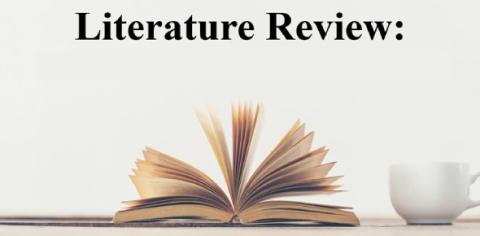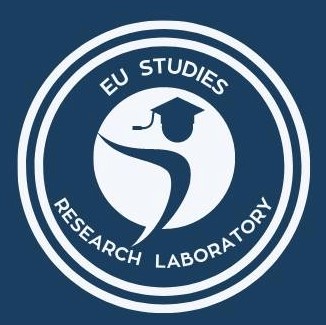How to review the literature in research p.1

If you do not have a specific research problem, you should review the literature in your broad area of interest with the aim of gradually narrowing it down to what you want to find out about. After that the literature review should be focused around your research problem. There is a danger in reviewing the literature without having a reasonably specific idea of what you want to study. It can condition your thinking about your study and the methodology you might use, resulting in a less innovative choice of research problem and methodology than otherwise would have been the case. Hence, you should try broadly to conceptualise your research problem before undertaking your major literature review.
There are four steps involved in conducting a literature review:
- Searching for the existing literature in your area of study.
- Reviewing the selected literature.
- Developing a theoretical framework.
- Developing a conceptual framework.
The skills required for these tasks are different. Developing theoretical and conceptual frameworks is more difficult than the other tasks.
Searching for the existing literature
To search effectively for the literature in your field of enquiry, it is imperative that you have at least some idea of the broad subject area and of the problem you wish to investigate, in order to set parameters for your search. Next, compile a bibliography for this broad area. There are three sources that you can use to prepare a bibliography:
- books;
- journals;
- the Internet.
Books
Though books are a central part of any bibliography, they have their disadvantages as well as advantages. The main advantage is that the material published in books is usually important and of good quality, and the findings are ‘integrated with other research to form a coherent body of knowledge. The main disadvantage is that the material is not completely up to date, as it can take a few years between the completion of a work and its publication in the form of a book.
The best way to search for a book is to look at your library catalogues. When librarians catalogue a book they also assign to it subject headings that are usually based on Library of Congress Subject Headings. If you are not sure, ask your librarian to help you find the best subject heading for your area. This can save you a lot of time. Publications such as Book Review Index can help you to locate books of interest.
Use the subject catalogue or keywords option to search for books in your area of interest. Narrow the subject area searched by selecting the appropriate keywords. Look through these titles carefully and identify the books you think are likely to be of interest to you. If you think the titles seem appropriate to your topic, print them out (if this facility is available), as this will save you time, or note them down on a piece of paper. Be aware that sometimes a title does not provide enough information to help you decide if a book is going to be of use so you may have to examine its contents too.
When you have selected 10–15 books that you think are appropriate for your topic, examine the bibliography of each one. It will save time if you photocopy their bibliographies. Go through these bibliographies carefully to identify the books common to several of them. If a book has been referenced by a number of authors, you should include it in your reading list. Prepare a final list of books that you consider essential reading.
Having prepared your reading list, locate these books in your library or borrow them from other sources. Examine their contents to double-check that they really are relevant to your topic. If you find that a book is not relevant to your research, delete it from your reading list. If you find that something in a book’s contents is relevant to your topic, make an annotated bibliography. An annotated bibliography contains a brief abstract of the aspects covered in a book and your own notes of its relevance. Be careful to keep track of your references. To do this you can prepare your own card index or use a computer program such as Endnotes or Pro-Cite.
Journals
You need to go through the journals relating to your research in a similar manner. Journals provide you with the most up-to-date information, even though there is often a gap of two to three years between the completion of a research project and its publication in a journal. You should select as many journals as you possibly can, though the number of journals available depends upon the field of study – certain fields have more journals than others. As with books, you need to prepare a list of the journals you want to examine for identifying the literature relevant to your study. This can be done in a number of ways. You can:
- locate the hard copies of the journals that are appropriate to your study;
- look at citation or abstract indices to identify and/or read the abstracts of such articles;
- search electronic databases.
If you have been able to identify any useful journals and articles, prepare a list of those you want to examine, by journal. Select one of these journals and, starting with the latest issue, examine its contents page to see if there is an article of relevance to your research topic. If you feel that a particular article is of interest to you, read its abstract. If you think you are likely to use it, depending upon your financial resources, either photocopy it, or prepare a summary and record its reference for later use. There are several sources designed to make your search for journals easier and these can save you enormous time. They are:
- indices of journals (e.g. Humanities Index);
- abstracts of articles (e.g. ERIC);
- citation indices (e.g. Social Sciences Citation Index).
Each of these indexing, abstracting and citation services is available in print, or accessible through the Internet.
In most libraries, information on books, journals and abstracts is stored on computers. In each case the information is classified by subject, author and title. You may also have the keywords option (author/keyword; title/keyword; subject/keyword; expert/keyword; or just keywords). What system you use depends upon what is available in your library and what you are familiar with.
There are specially prepared electronic databases in a number of disciplines. These can also be helpful in preparing a bibliography.
Select the database most appropriate to your area of study to see if there are any useful references. Of course, any computer database search is restricted to those journals and articles that are already on the database. You should also talk to your research supervisor and other available experts to find out about any additional relevant literature to include in your reading list.
The Internet
In almost every academic discipline and professional field, the Internet has become an important tool for finding published literature. Through an Internet search you can identify published material in books, journals and other sources with immense ease and speed.
An Internet search is carried out through search engines, of which there are many, though the most commonly used are Google and Yahoo. Searching through the Internet is very similar to the search for books and articles in a library using an electronic catalogue, as it is based on the use of keywords. An Internet search basically identifies all material in the database of a search engine that contains the keywords you specify, either individually or in combination. It is important that you choose words or combinations of words that other people are likely to use.
Most search facilities use Boolean logic, which allows three types of basic search “AND”, “OR” and “NOT”. With practice, you will become more efficient and effective in using keywords in combination with AND, OR and NOT, and so learn to narrow your search to help you identify the most relevant references.
Ranjit Kumar "Research methodology. Step-by-step guide for beginners".





